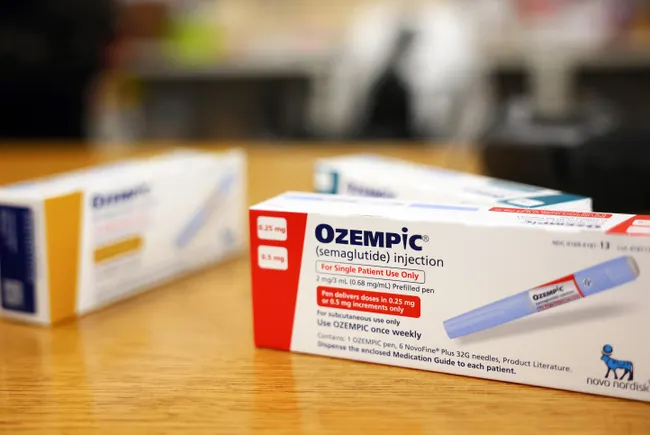The use of weight loss drugs in America is on the rise, with around 6 million adults using GLP-1s such as Ozempic and Wegovy to help lose weight. This trend is set to have a significant impact on the food industry, as these medications suppress hunger and lead to lower consumption of various products.
According to a FAIR Health report, 137 million Americans are eligible for these weight loss drugs, indicating a potentially massive market for these medications. A study by Cornell found that grocery spending decreased by 6% in households where at least one person was taking weight loss drugs.
The challenge for food and beverage companies now lies in understanding how consumer diet patterns are changing with the use of these medications. Research from the University of Arkansas revealed that consumers on GLP-1s consume 700 fewer calories a day and tend to avoid processed foods, sugar-sweetened beverages, refined grains, and beef. On the other hand, consumption of fruit, leafy greens, and water increased.
To cater to consumers on weight loss drugs, companies are now offering smaller portion sizes, more nutritionally dense options, and foods fortified with fiber or vitamins. Nestlé, for example, launched a GLP-1-friendly frozen product line featuring bowls with whole grains, portion-aligned sandwich melts, and pizzas with cauliflower crust.
The focus is no longer just on offering low-calorie meal plans but on providing foods that help consumers maintain nutrient intake and avoid muscle mass loss. Companies are now marketing their products as both nutritious and indulgent, recognizing that consumers still desire these types of foods.
In addition to nutrition, the social and cultural aspects of eating are also important considerations for food companies. More companies are emphasizing the social and experiential aspects of their foods to capture consumers in the GLP-1 era.
Overall, the key to success in the changing landscape of the food industry lies in offering care and intention behind packaging, messaging, and nutrition benefits. As Lydia Alexander, chief medical officer at Enara Health, points out, food will matter more than ever in the GLP-1 era because it is an experiential part of daily life. By focusing on providing delicious and intentional food options, companies can thrive in this evolving market.


